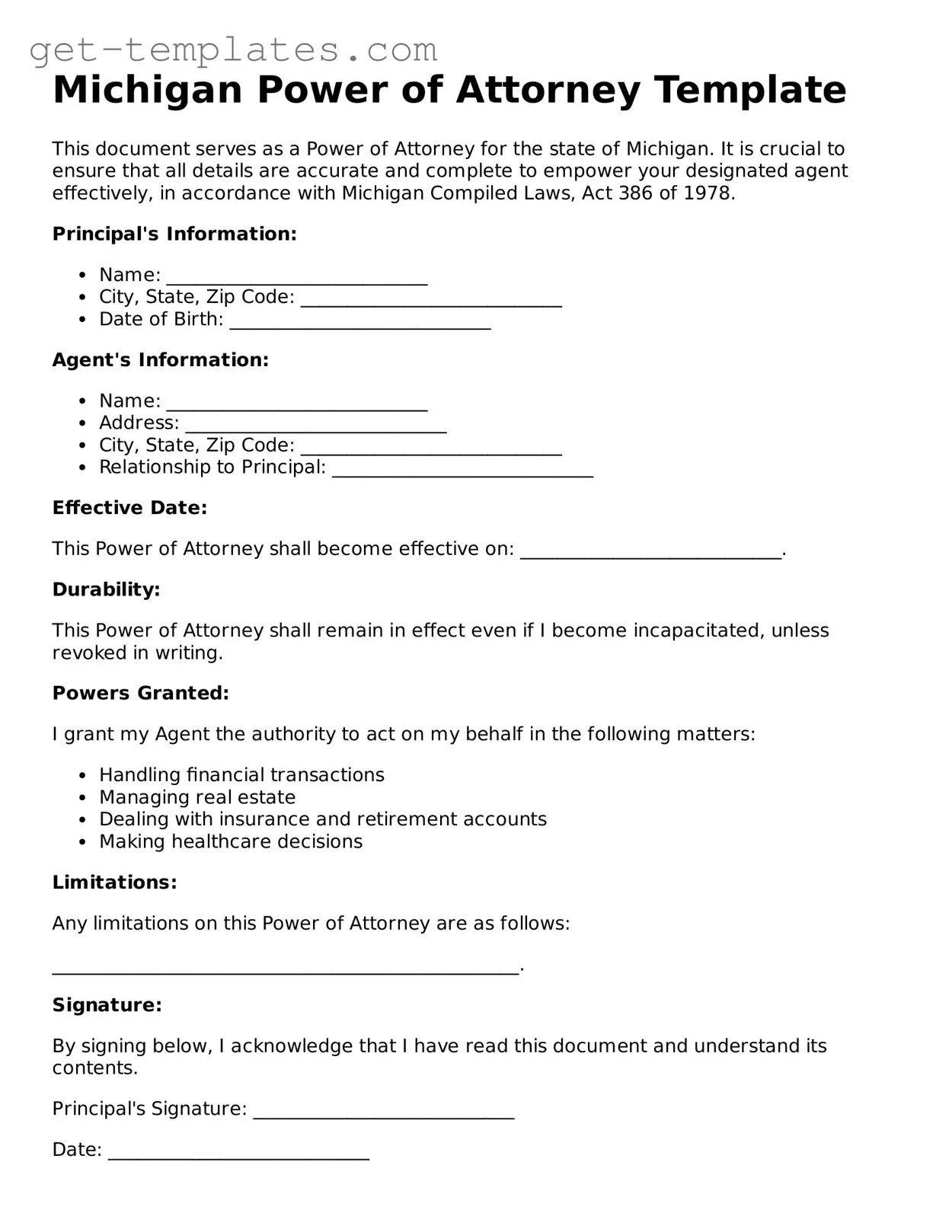Attorney-Approved Power of Attorney Document for Michigan
The Michigan Power of Attorney form is a legal document that allows one person to grant another individual the authority to act on their behalf in financial or medical matters. This form is essential for ensuring that your wishes are respected when you are unable to make decisions for yourself. Understanding how to properly complete and utilize this form can provide peace of mind and security for you and your loved ones.
Get Document Online

Attorney-Approved Power of Attorney Document for Michigan
Get Document Online
You’re halfway through — finish the form
Finish Power of Attorney online — edit, save, download made easy.
Get Document Online
or
⇓ PDF Form
